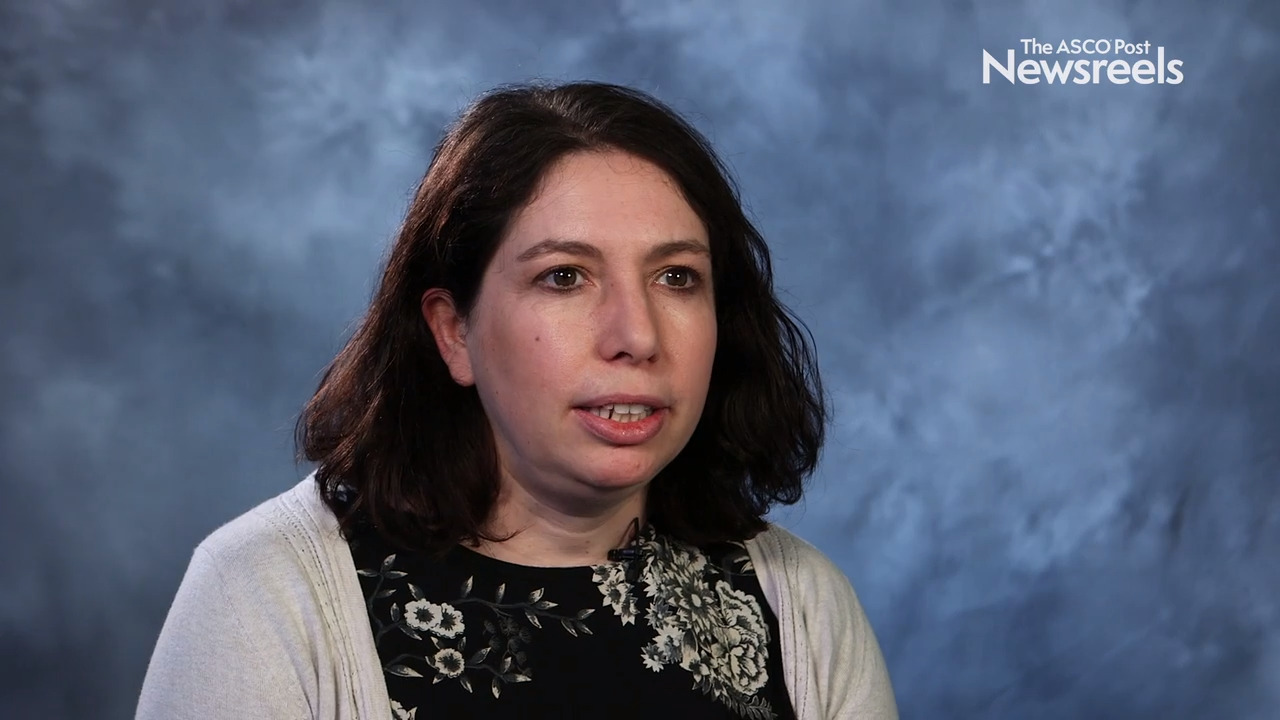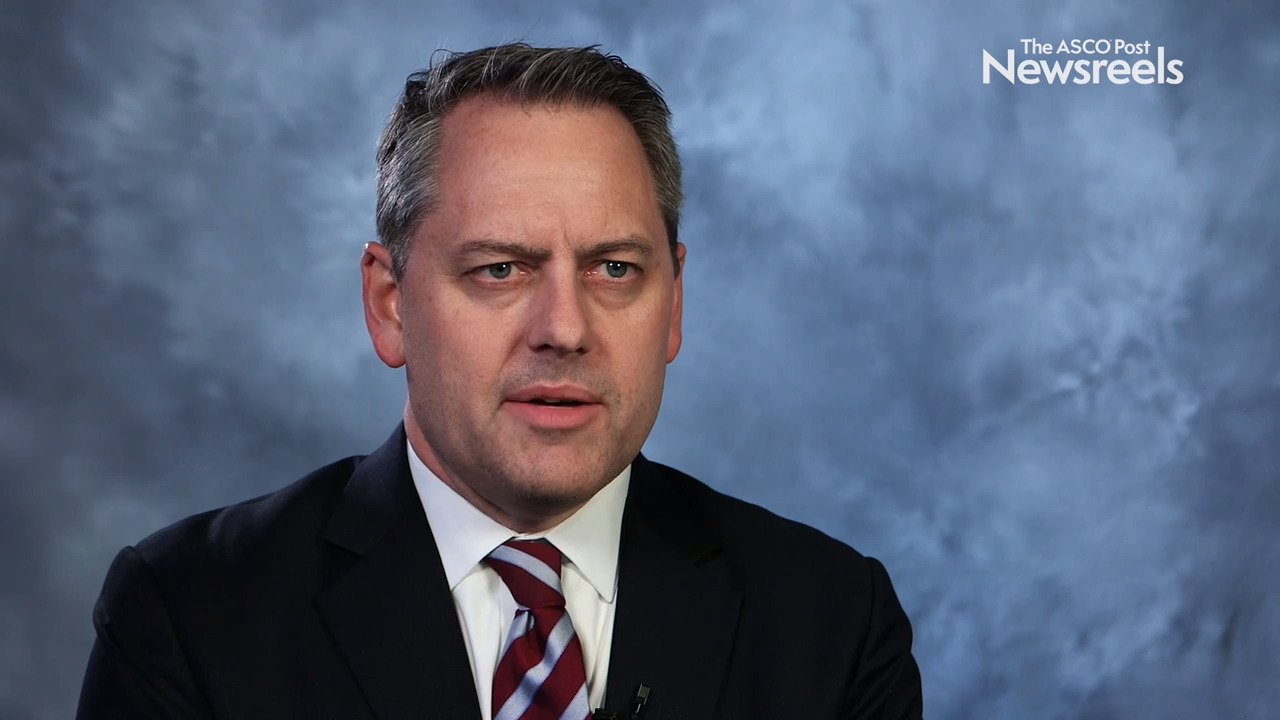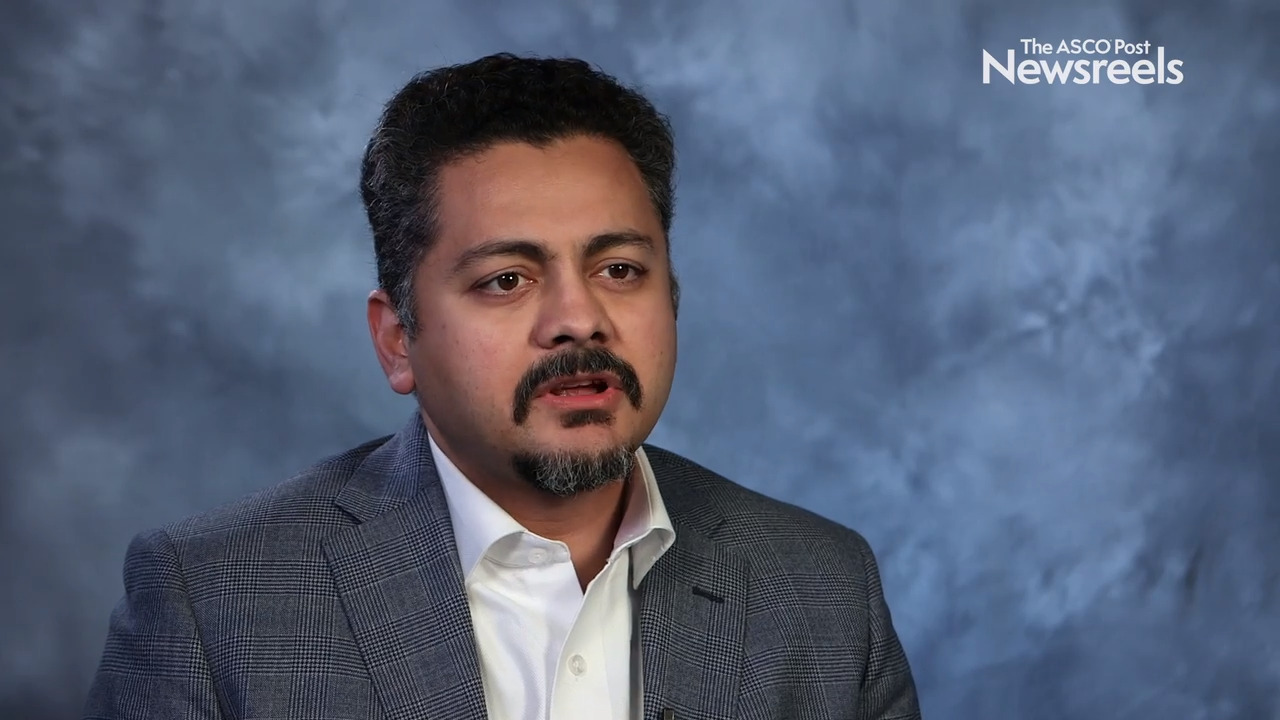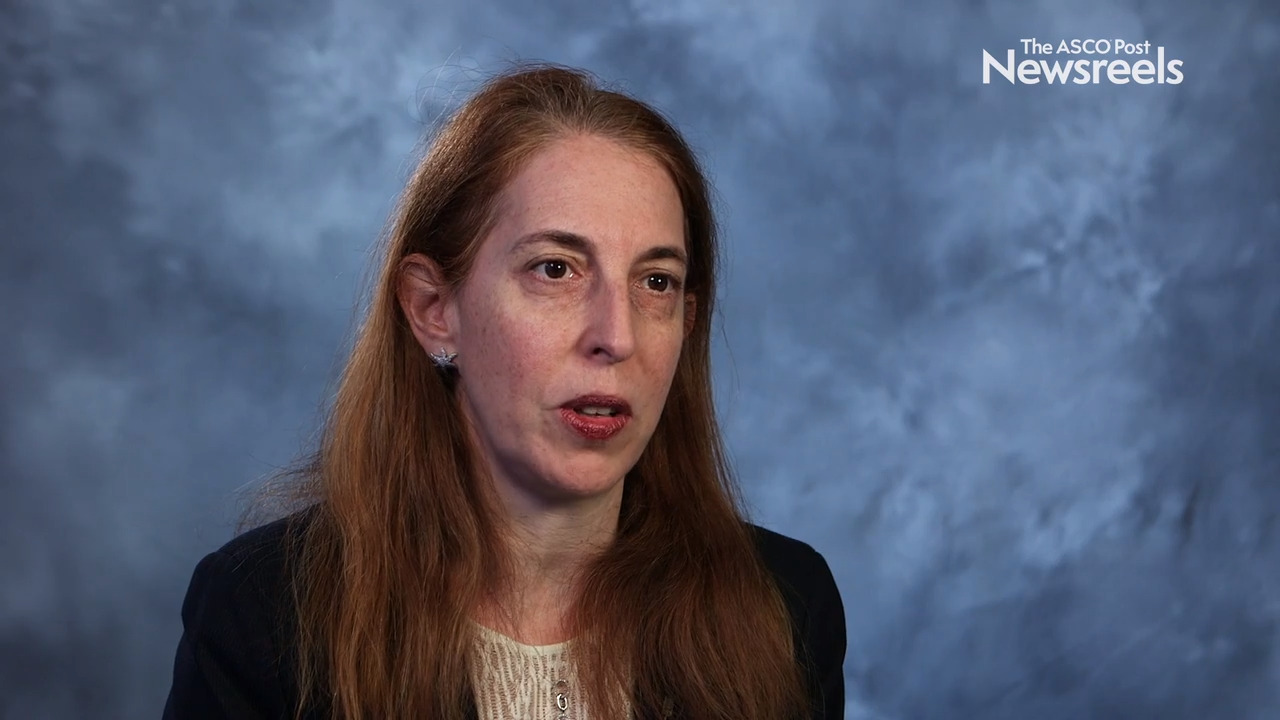Jerald P. Radich, MD, on CML: Predicting Deep Molecular Response to Treatment
2019 ASH Annual Meeting & Exposition
Jerald P. Radich, MD, of the Fred Hutchinson Cancer Research Center, discusses a gene-expression model that distinguishes patients with chronic myeloid leukemia who achieved a deep molecular response from those with a poor response to treatment. This work could yield new therapeutic targets that could potentially turn a poor responder into a good responder who might even achieve treatment-free remission (Abstract 665).
The ASCO Post
Mhairi Copland, PhD, MB BChir, of the University of Glasgow, discusses results of a study on the combination of ponatinib and fludarabine, cytarabine, idarubicin, and G-CSF for patients with blast phase chronic myeloid leukemia, a rare complication with a poor outcome (Abstract 497).
Jeff P. Sharman, MD, of the Willamette Valley Cancer Institute and US Oncology Research, discusses phase III findings from the ELEVATE TN study, which showed that acalabrutinib plus obinutuzumab and acalabrutinib monotherapy improved progression-free survival in patients with treatment-naive chronic lymphocytic leukemia (Abstract 31).
Saad Z. Usmani, MD, of the Levine Cancer Institute, discusses phase III study findings suggesting that the combination of carfilzomib/dexamethasone/daratumumab represents an efficacious new regimen for patients with relapsed or refractory disease, including those refractory to lenalidomide (Abstract LBA-6).
Catherine M. Diefenbach, MD, of the Perlmutter Cancer Center at NYU Langone, discusses a primary analysis of a phase Ib/II trial showing that the novel triplet combination of polatuzumab vedotin plus obinutuzumab/lenalidomide is safe and effective, with high complete response rates seen in a heavily pretreated and refractory population (Abstract 126).
C. Ola Landgren, MD, PhD, of Memorial Sloan Kettering Cancer Center, discusses phase II study findings that showed an 83% negative rate of minimal residual disease in newly diagnosed multiple myeloma treated weekly with 8 cycles of the quadruplet regimen of carfilzomib/lenalidomide/dexamethasone/daratumumab, without autologous stem cell transplant (Abstract 862).





